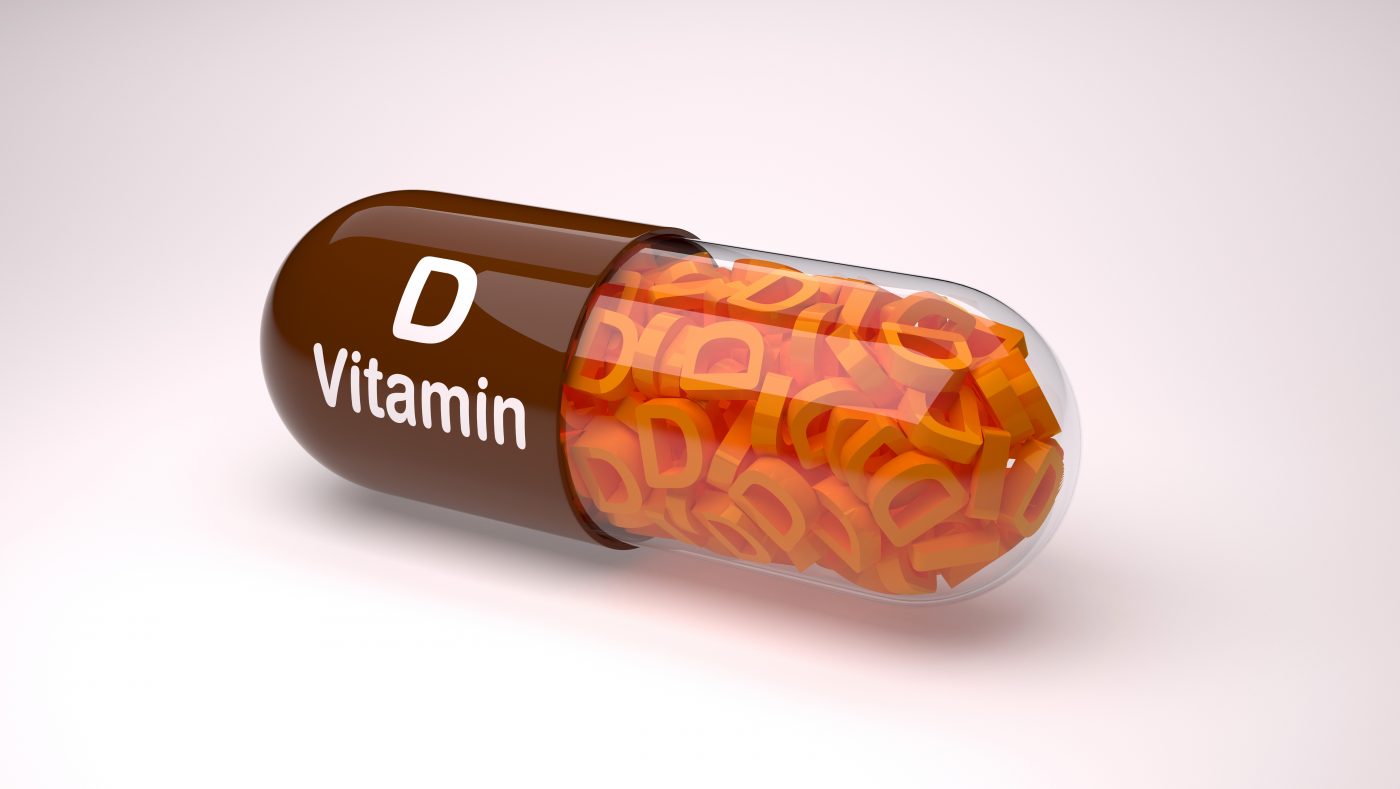Higher Vitamin D Levels May Promote ‘Myelin Integrity’ in Progressive MS, Study Suggests
Written by |

Higher levels of vitamin D in the blood may help to protect the myelin sheath, slowing damage to nerve cells in people with progressive forms of multiple sclerosis (MS), a brain imaging study reports.
The study, “Vitamin D and MRI measures in progressive multiple sclerosis,” was published in the journal Multiple Sclerosis and Related Disorders.
Vitamin D deficiency has been proposed as a risk factor for MS, but most studies were conducted in people with the relapsing-remitting (RRMS) form of the disease. What data exist for progressive disease suggest that vitamin D levels in these people are even lower than in RRMS patients, and may predict conversion to secondary progressive multiple sclerosis (SPMS).
Low vitamin D levels have been associated with greater lesion volume, brain atrophy (shrinkage), and disability over time, but the link between such levels and clinical progression on magnetic resonance imaging (MRI) scans in progressive MS remains unclear.
A Cleveland Clinic team addressed this in people with primary progressive MS (PPMS) and SPMS taking part in the SPRINT-MS Phase 2b trial (NCT01982942) of ibudilast.
Study participants at 28 sites across the United States all had clinically relevant progression over the two years before the trial’s start. They were allowed to continue treatment with glatiramer acetate (marketed as Copaxone by Teva Pharmaceutical, with generic names); interferon beta-1A formulations, including Avonex (by Biogen) and Rebif (by EMD Serono); or the interferon beta-1b medications like Betaseron (by Bayer) and Extavia (by Novartis).
Among the 286 patients enrolled in SPRINT-MS, 267 were included in this analysis, having both blood samples and brain imaging data available. This patient group had a mean age of 55.6 (ranging between 31.8 and 65.9) and a mean disease duration of 16.4 years. Among them, 126 were women, and 60 had a family history of MS; 137 patients had PPMS and 130 SPMS.
Blood levels of 25-hydroxyvitamin, or 25(OH)D, were examined, as this accounts for the two main forms of vitamin D — 25(OH)D2 and 25(OH)D3. Mean levels of this overall measure were greater than the study’s cut-off value of 30 ng/ml in 70% of patients, the researchers said, a finding “contrary to the results previously reported in progressive MS studies.”
Looking at its two components, the mean level for 25(OH)D2 was 43.8 ng/ml, and 40.7 ng/ml for 25(OH)D3. No differences were seen when comparing PPMS with SPMS patients, but older women with longer disease duration had higher vitamin 25(OH)D3 levels.
Grouping patients according to 25(OH)D3 blood levels — under 30, between 30–39 or 40–49, and over 50 ng/ml — continued to show no differences between groups regarding Expanded Disability Status Scale mean scores or in any conventional brain imaging measures, such as brain volume and active or inflammatory new lesions.
“25(OH)D3 levels were not associated with brain volume or lesional measures in progressive MS contrary to what has been described in [RRMS],” the team wrote.
However, when researchers accounted for factors such as age, gender, and disease duration, a subsequent analysis showed that higher levels of 25(OH)D3 were significantly associated with greater scores in whole brain (WB) and in normal appearing grey matter (NAGM) using magnetization transfer ratio (MTR) — which assesses myelin content and nerve fiber density.
Grey matter is made of nerve cell bodies, their projections, and the sites where they communicate with each other, called synapses.
“The positive associations between vitamin 25(OH)D3 and WB/NAGM-MTR values suggest that vitamin D may have a protective role in progressive MS patients” in terms of “myelin integrity,” the researchers said. Such benefits could be via immune modulation, and anti-inflammatory and antioxidant effects, they added.
However, the team cautioned that because vitamin D supplements were not part of SPRINT-MS, and no information on UV exposure — which contributes to vitamin D production by the body — in trial participants was available, its study can only provide “limited support regarding the importance of vitamin D” in progressive patients.


